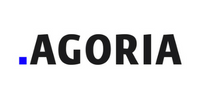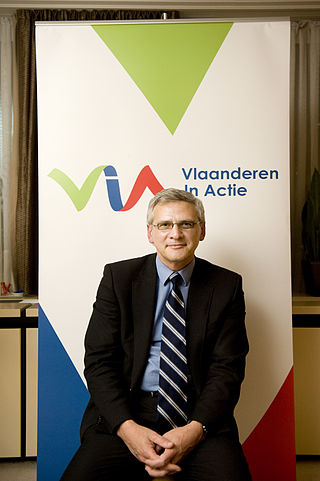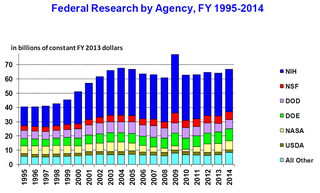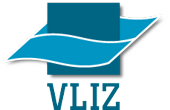Core tasks
Financial support: The Agency for Innovation by Science and Technology distributed about 300 million euros annually in subsidies. The grants went primarily to innovation studies, innovation and R&D projects submitted by small and medium-sized enterprises and large companies, universities, colleges and other Flemish innovative players; either individually or jointly. Part of the budget was distributed by the agency itself through its own support programs. For the remaining part, the agency acted as an intermediary: the preparation, monitoring and financial management was done by the agency in the name of the Flemish Government.
Consultancy: The Agency for Innovation by Science and Technology wanted innovation processes to happen as efficient and simple as possible. The agency consulted Flemish companies and R&D-centers in their innovation projects and funds applications.
Coordination and networking: The Agency for Innovation by Science and Technology also facilitated close cooperation between all players in the field of innovation in Flanders. The Flemish Innovation Network, for example, founded by the agency, brought together the knowledge and expertise of dozens of intermediary organizations.
Policy: The Agency for Innovation by Science and Technology played an important role in the preparation of policies aimed at boosting innovation in Flanders.
Technology transfer (TT), also called transfer of technology (TOT), is the process of transferring (disseminating) technology from the person or organization that owns or holds it to another person or organization, in an attempt to transform inventions and scientific outcomes into new products and services that benefit society. Technology transfer is closely related to knowledge transfer.

Science policy is concerned with the allocation of resources for the conduct of science towards the goal of best serving the public interest. Topics include the funding of science, the careers of scientists, and the translation of scientific discoveries into technological innovation to promote commercial product development, competitiveness, economic growth and economic development. Science policy focuses on knowledge production and role of knowledge networks, collaborations, and the complex distributions of expertise, equipment, and know-how. Understanding the processes and organizational context of generating novel and innovative science and engineering ideas is a core concern of science policy. Science policy topics include weapons development, health care and environmental monitoring.

Agoria, previously known as Fabrimetal, is a Belgian employers' organization and member of the Federation of Belgian Enterprises.
Open innovation is a term used to promote an Information Age mindset toward innovation that runs counter to the secrecy and silo mentality of traditional corporate research labs. The benefits and driving forces behind increased openness have been noted and discussed as far back as the 1960s, especially as it pertains to interfirm cooperation in R&D. Use of the term 'open innovation' in reference to the increasing embrace of external cooperation in a complex world has been promoted in particular by Henry Chesbrough, adjunct professor and faculty director of the Center for Open Innovation of the Haas School of Business at the University of California, and Maire Tecnimont Chair of Open Innovation at Luiss.
The Flemish Institute for Technological Research, is an independent Flemish research organisation that provides scientific advice and technological innovations that facilitate the transition to a sustainable society, and this in the areas of energy, chemistry, materials, health and land use.
The National Fund for Scientific Research (NFSR) was once a government institution in Belgium for supporting scientific research until it was split into two separate organizations:
iMinds was a Flemish non-profit organization, founded by the Flemish Government. It was founded as a research institute, with a focus on information & communication technology (ICT) in general, and applications of broadband technology in particular. iMinds offers companies and organizations active support in research and development. It brings together companies, authorities, and non-profit organizations to join forces on research projects.

Technopolis is a Flemish technology education centre located near Mechelen.
Science and technology in Flanders, being the Flemish Community and more specifically the northern region of Belgium (Europe), is well developed with the presence of several universities and research institutes. These are strongly spread over all Flemish cities, from Kortrijk and Bruges in the Western side, over Ghent as a major university center alongside Antwerp, Brussels and Leuven to Hasselt and Diepenbeek in the Eastern side.
The Participatiemaatschappij Vlaanderen (PMV) is an independent organization owned by the Flemish government which supports economic investment initiatives in Flanders.

Flanders in Action is a social and economic action programme for the future of Flanders which was established by the Flemish government on 11 July 2006.
The technological innovation system is a concept developed within the scientific field of innovation studies which serves to explain the nature and rate of technological change. A Technological Innovation System can be defined as ‘a dynamic network of agents interacting in a specific economic/industrial area under a particular institutional infrastructure and involved in the generation, diffusion, and utilization of technology’.

The United Nations University Institute on Comparative Regional Integration Studies (UNU-CRIS) is a Research and Training Institute of the United Nations University (UNU). Based in Bruges, Belgium since 2001, UNU-CRIS fosters a better understanding of the processes of regional integration and cooperation and their implications in a changing world order. UNU-CRIS specialises in the comparative study of regional integration, monitoring and assessing regional integration worldwide and in the study of interactions between regional organisations and global institutions.
Innovation Intermediaries is a concept in innovation studies to help understand the role of firms, agencies and individuals that facilitate innovation by providing the bridging, brokering, knowledge transfer necessary to bring together the range of different organisations and knowledge needed to create successful innovation. The term open innovation intermediaries was used for this concept by Henry Chesbrough in his 2006 book as "companies that help other companies implement various facets of open innovation".
The Amazonian Scientific Research Institute SINCHI is a non-profit research institute of the Government of Colombia charged with carrying out scientific investigations on matters relating to the Amazon Rainforest, the Amazon River and the Amazon Region of Colombia for its better understanding and protection. The word SINCHI, is a word in Quechua that means "strong" or "fierce".

The science policy of the United States is the responsibility of many organizations throughout the federal government. Much of the large-scale policy is made through the legislative budget process of enacting the yearly federal budget, although there are other legislative issues that directly involve science, such as energy policy, climate change, and stem cell research. Further decisions are made by the various federal agencies which spend the funds allocated by Congress, either on in-house research or by granting funds to outside organizations and researchers.

The Flanders Marine Institute provides a focal point for marine scientific research in Flanders, northern Belgium.

The Technology Agency of the Czech Republic(TA CR) (Czech: Technologická agentura České republiky) is a Czech government agency, founded in 2009 to enhance and encourage cooperation between research organizations supported by the state and the business sector. Within its programmes, projects of applied research, experimental development and innovations are elected and financed.
Science and Technology in Chile is led by the National Commission of Scientific and Technological Investigation.
Technology intermediaries are an important actor of the innovation system. According to Howells their role is to act as brokers or third parties in order to build the bridges between the various participations within the open system.







